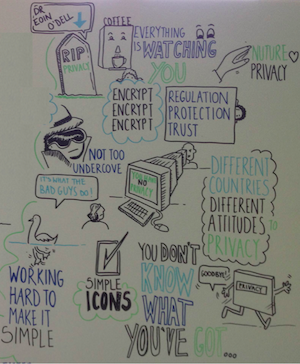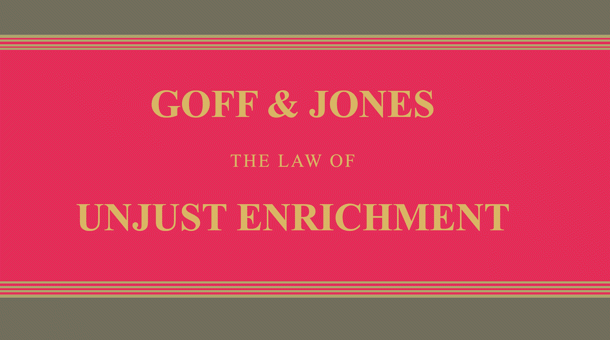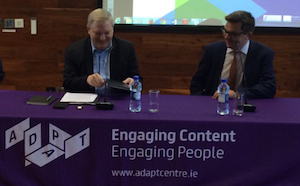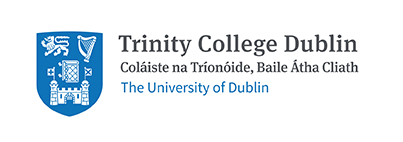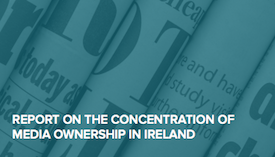 A just-published Report on the Concentration of Media Ownership in Ireland (download pdfs here and here) directly addresses the question in the title to this post: what are the constitutional issues facing the regulation of media ownership in Ireland. The Report concludes that such issue do not prevent government action here, and calls on the Irish government to tackle Denis O’Brien’s media control. It seems that some media are ignoring it. That is a pity. It is a very important Report. It was commissioned by Lynn Boylan MEP on behalf of the European United Left/Nordic Green Left (GUE/NGL) group of the European Parliament, and was prepared by Caoilfhionn Gallagher and Jonathan Price, barristers in Doughty Street Chambers, London, and Gavin Booth and Darragh Mackin, of the Belfast solicitors’ firm KRW Law. It was launched in Leipzig (panel | photo) on 6 October last, and in Dublin last night (press notice | photos).
A just-published Report on the Concentration of Media Ownership in Ireland (download pdfs here and here) directly addresses the question in the title to this post: what are the constitutional issues facing the regulation of media ownership in Ireland. The Report concludes that such issue do not prevent government action here, and calls on the Irish government to tackle Denis O’Brien’s media control. It seems that some media are ignoring it. That is a pity. It is a very important Report. It was commissioned by Lynn Boylan MEP on behalf of the European United Left/Nordic Green Left (GUE/NGL) group of the European Parliament, and was prepared by Caoilfhionn Gallagher and Jonathan Price, barristers in Doughty Street Chambers, London, and Gavin Booth and Darragh Mackin, of the Belfast solicitors’ firm KRW Law. It was launched in Leipzig (panel | photo) on 6 October last, and in Dublin last night (press notice | photos).
Here’s a flavour of the Report, from the executive summary [with added links to relevant posts on this site]:
…1.8 In our view, taken together, the combination of the highly concentrated Irish media market, Mr. O’Brien’s threats and initiation of a large number of legal proceedings against media and other critics, and serious shortcomings in the defamation framework create a perfect storm which threatens news plurality and undermines the media’s ability to perform its watchdog function.

